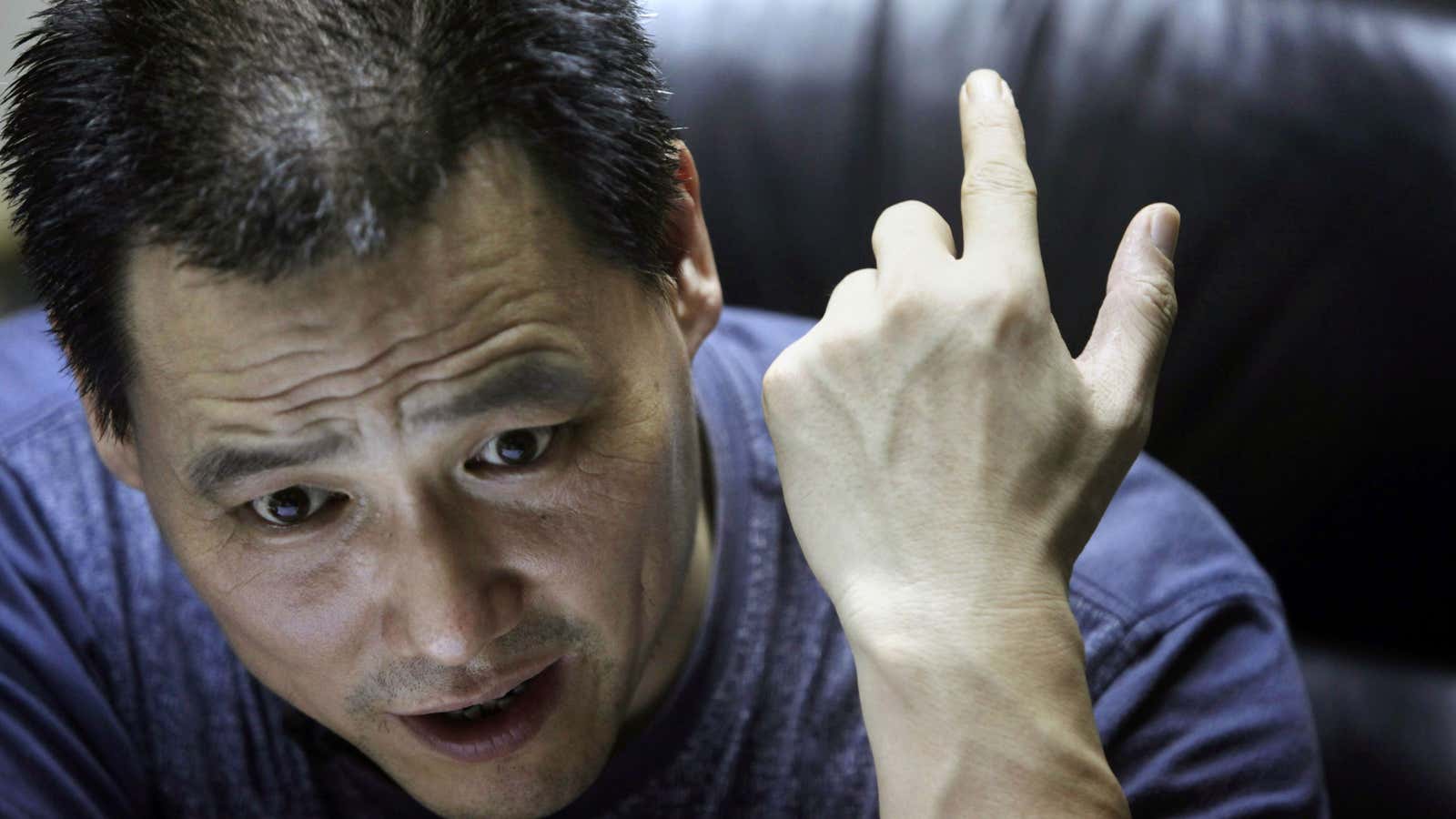One of China’s most prominent human rights lawyers was tried today (Dec. 14) for the crimes of “inciting ethnic hatred” and “creating a disturbance,” after criticizing the Communist Party’s members and policies on social media. The charges against Pu Zhiqiang are based on seven of his 20,000 messages on the microblogging site Weibo.
Pu’s essentially closed trial was held before Beijing No. 2 Intermediate People’s Court, and lasted for just three hours and 15 minutes. Pu’s lawyer, Mo Shaoping, told Quartz that Pu admitted posting all seven messages, and is willing to apologize for his rude words in the posts. But Pu insisted he had no intention of sparking ethnic hatred or creating a disturbance, Mo said, and pleaded innocent.
In his final statement, Pu said that he hopes the court could “give a verdict that stands the test of history,” Mo said. The strong sentiment appears to challenge China’s government-allied judiciary to act independently. Officials have not said when the verdict will be announced.
Pu had been criminally detained since he attended a seminar on the 1989 Tiananmen Square protests in May of 2014. Beijing prosecutors indicted Pu this May on the two current charges, but dropped charges of “inciting separatism” and “illegally obtaining personal information.” At a pre-trail hearing last week, prosecutors reduced the evidence to just seven short messages, in which Pu sarcastically criticized Chinese officials and the government’s ethnic policies.
Rights groups and activists have condemned the charges against Pu—which carried a maximum sentence of eight years—and asked for his free release. “Nothing Pu Zhiqiang has written has violated any law, but the authorities’ treatment of him certainly has,” said Sophie Richardson, China director at Human Rights Watch, in a statement. “A guilty verdict will be an indictment of the Chinese government, its law, and its legal system—not of Pu.”
Pu is a popular and well respected figure in Beijing, and as the trial got underway, police forces—including plain clothes officials wearing yellow smiley faces stickers— were deployed outside the courthouse to clear out dozens of foreign journalists, diplomats, and local protesters at the scene. The Guardian’s Tom Phillips was on the ground:
Although Pu’s trial was technically open to observers who applied beforehand to see it, diplomats from the US, the UK, the European Union and other countries were turned away, and told the courtroom was “full,” Phillips reported. A map of the Beijing No. 2 Intermediate People’s Court shows the Sixth Courtroom, where Pu’s trial was held, is relatively small, despite the international interest in the case.
Once a student activist in the pro-democracy Tiananmen Square protests, Pu, 50, is best known for advocating for the abolition of China’s “reeducation through labor” system by representing detainees in high-profile cases. He also represented dissident artist Ai Weiwei when his company sued Beijing tax authorities in 2012. Pu was selected as the “Person of the Year in Legal Affairs in 2013” by Renwu Magazine, which is published by state-owned People’s Daily Press.
